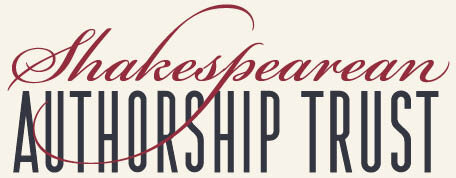Why the Shakespeare Authorship Question?
A closer look
The majority of people assume that it was the actor from Stratford who wrote the plays and poems attributed to Shakespeare. But also, the majority of people have not looked very closely into the history. For many years people have doubted, based on what we know of the actor’s life, that he would have been able to write the plays and poems and may therefore have served as a ‘front’ for a hidden author, or may have collaborated more extensively than we imagine. Even more importantly, there is no documented evidence during his lifetime that the man named William Shakespeare from Stratford was a writer. Suggestions of other authors and doubt about the authorship actually begins during Shakespeare’s lifetime.
Today, exactly how the plays were crafted is by no means agreed upon, and whoever you believe wrote the plays, the authorship enquiry yields much provocative research into their craft and meaning. If you are wondering why there is a question in the first place, we recommend reading the Declaration of Reasonable Doubt at www.DoubtAboutWill.org.
An actor’s perspective
I have been surprised again and again by the strength of emotion this historical question raises. As an actor of thirty years’ experience playing Shakespeare, I have been assisted by scholars, professional and amateur, no two of whom imagine the same author, even when they agree upon the name! The plays have been my living and I would dearly love to know how such wonders of nature were created, especially as we know for certain they are the invention of an inspired human being working alone and with others. An understanding of the creation could reveal a creative process most beneficial to modern drama and society as a whole. But whether the enquiry yields a definite solution or not is perhaps not essential; for me, the enquiry illuminates Shakespeare’s world of renaissance society and theatrical writing. As Henry Miller wrote, “One’s destination is never a place, but rather a new way of looking at things.” I hope our website helps you find what you are looking for and maybe something you are not looking for.
Mark Rylance
Trustee of the Shakespearean Authorship Trust
An open debate
The authorship question merits open debate not only because of the mismatch between the life and the works which all biographers of Shakespeare are obliged to confront, but also because of the clear evidence for the practice of pseudonymous, proxy, and collaborative authorship among Elizabethan and Jacobean dramatists. Paradoxically, the case for doubt over the actor as author has been eloquently and repeatedly made by orthodox scholars—by Samuel Schoenbaum, for example, speaking of the ‘vertiginous expanse between the sublimity of the subject and the mundane inconsequence of the documentary record,’ and by Katherine Duncan-Jones, who sifts the record in her book, Ungentle Shakespeare, to present a portrait of a mean-spirited and litigious money-lender, hoarder of grain, and withholder of charity. How to reconcile this with an author who critiques usury and expresses the widest possible human sympathies? How to match the creator of a Rosalind, a Beatrice, or a Portia with a man whose daughter could only sign her name with a crude mark? Or how to associate a mind which encompasses the most recondite range of knowledge and experience with a man whose movements appear to have been confined to travel between Stratford and London? The anomalies and discrepancies are baffling.
Those who seek to foreclose on this debate like to claim that doubts over the authorship only arose centuries after the publication of the First Folio in 1623. This is simply not the case. From what has been taken to be the first-ever recorded reference to Shakespeare as ‘Shake-scene’ in Robert Greene’s publication, Groatsworth of Wit (itself a work of disputed authorship!) which presents the actor as a plagiarist and impostor who passes off the works of genuine playwrights as his own, to Thomas Vicars’ coy reference in an otherwise conventional list of writers to ‘that famous poet who takes his name from “shaking” and “spear”‘ (Cheiragogia 1628), there appears to have been a fascination with the phenomenon of surrogate and concealed authorship among a score of Shakespeare’s contemporaries who seem to have felt compelled to drop heavy and mysterious hints.
The selective filter which the orthodox paradigm imposes has caused the wealth of scholarly research carried out by proponents of alternative authorship to be sidelined. And yet these fresh perspectives can bring genuine explanatory power to bear on the plays, shedding light on multiple aspects of their genesis and allusiveness which otherwise remain opaque and unexplored.
Much remains to be discovered. The SAT exists to promote constructive engagement between advocates of all the claimants, making common cause to sharpen scholarship, challenge false assumptions, and follow the evidence wherever it may lead in the interests of all those who share a passion for the Shakespearean works.
Julia Cleave
Trustee of the Shakespearean Authorship Trust



